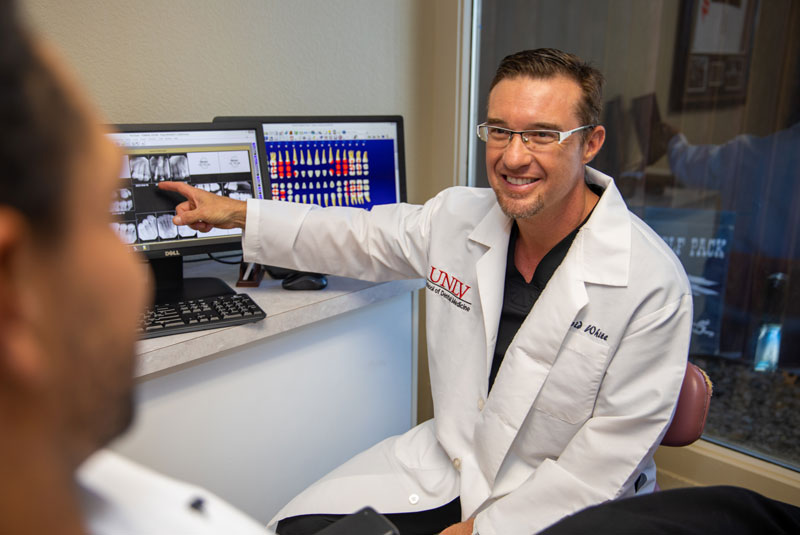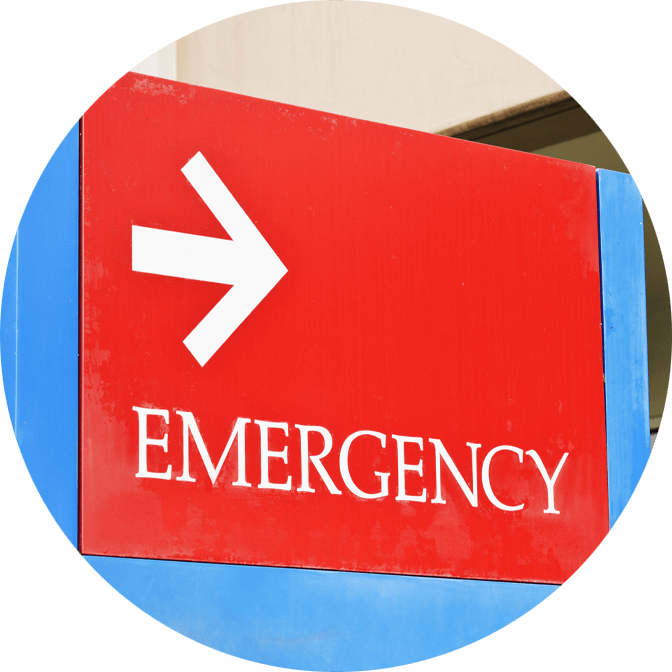
Your Trusted Emergency Dentist in Reno & Elko, NV

Emergency Dentistry Conditions That We Treat
- Sudden or severe toothache
- Infected or abscessed tooth
- Loose tooth or filling
- Fractured or broken tooth
- Painful or inflamed gums
- Dislodged or knocked-out tooth
- Broken or damaged denture
- Chipped or cracked tooth or crown
Treating Problematic Symptoms
Knocked-Out Tooth
An avulsed (knocked-out) tooth or one that has been partially dislodged requires immediate attention. If you’ve lost a tooth, put the tooth back in the socket if possible and hold it there until you receive emergency care. Otherwise, place the tooth in a small container of milk to preserve it. If replaced in the socket by our emergency dentist within the proper timeframe and held secure with a splint, the tooth may be able to be saved.
Persistent Toothache
Tooth pain that does not go away is generally a sign that infection is present, sometimes inside your tooth. A filling may be all you need. However, extreme tooth sensitivity or sharp pain when you bite or chew can also indicate an emergency dentistry situation involving your tooth root. These cases often require root canal therapy before your painful toothache can be relieved.
Broken Tooth
Suffering severe damage to a tooth after oral trauma or injury should be treated immediately. Minor chips and cracks can wait, but if you have broken or fractured a tooth, you can experience more than a severe toothache. Damage may go beyond the outside to the inside of the tooth and will need immediate attention from our emergency dentist in Reno & Elko, NV. Depending on the size and extent of the break, you may need a filling, dental crown, or a root canal. More severe cases may require emergency tooth extractions.
Tooth Abscess
An infection due to an injury, cavity, or previous dental work can cause an abscess to form at the base of the tooth root. Treatment frequently involves an emergency root canal to eliminate the damaged pulp from inside the root.
Dry Socket
Have you recently received a tooth extraction? A dry socket occurs when the blood clot in an empty tooth socket is dislodged and exposes underlying nerves and bone. To prevent infection and resolve intense oral pain, this requires immediate treatment, usually involving cleaning the empty socket and packing the space with gauze.
Expect Exceptional Dental Care Here


Dental Emergency or Medical Emergency?
PLEASE NOTE: If you’re having neck or head pain, are bleeding uncontrollably, are feeling dizzy, or have suffered severe trauma, please seek immediate medical attention by calling 911 or by getting transportation to the nearest medical facility. Medical personnel are best equipped to assist you with symptoms such as these.



